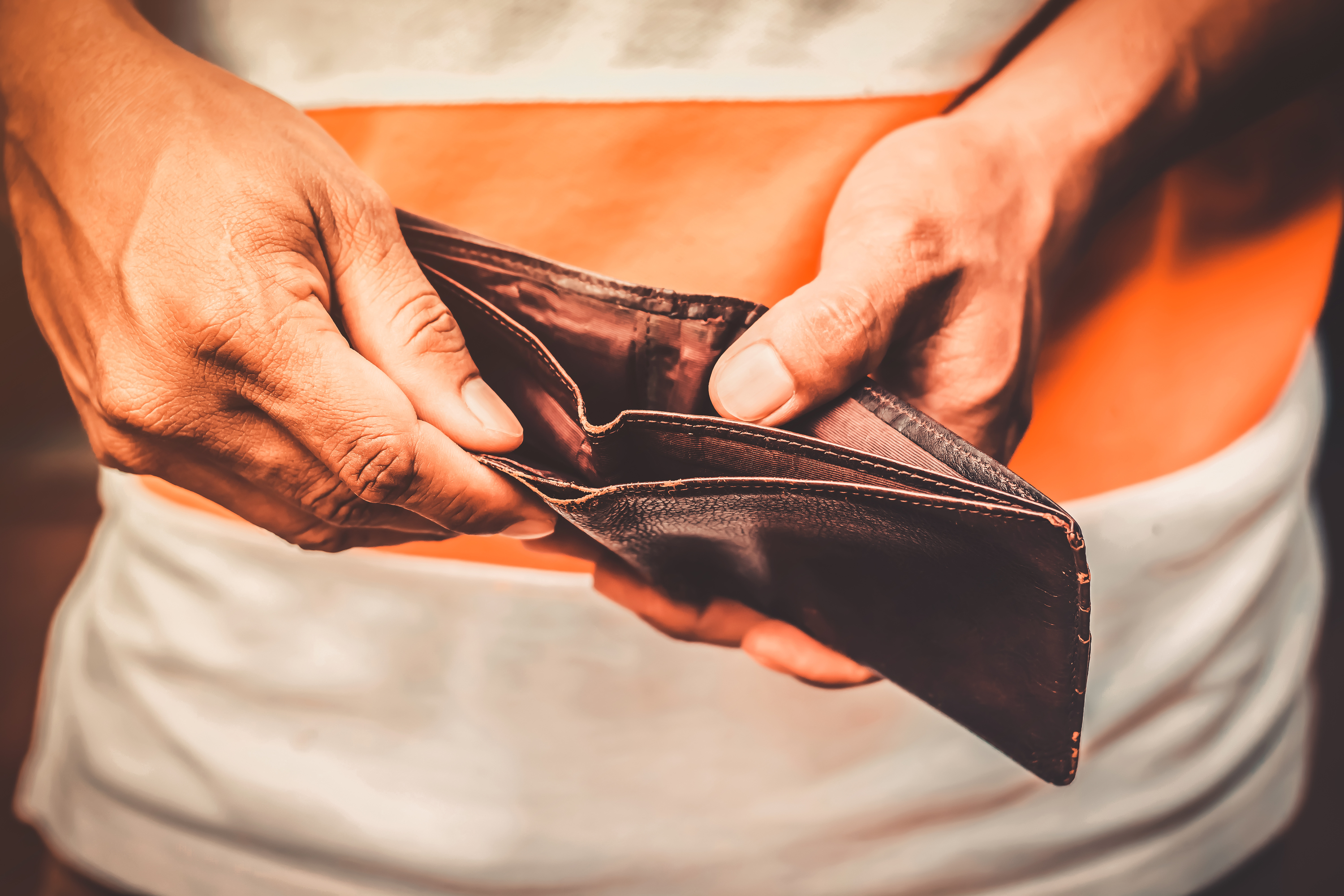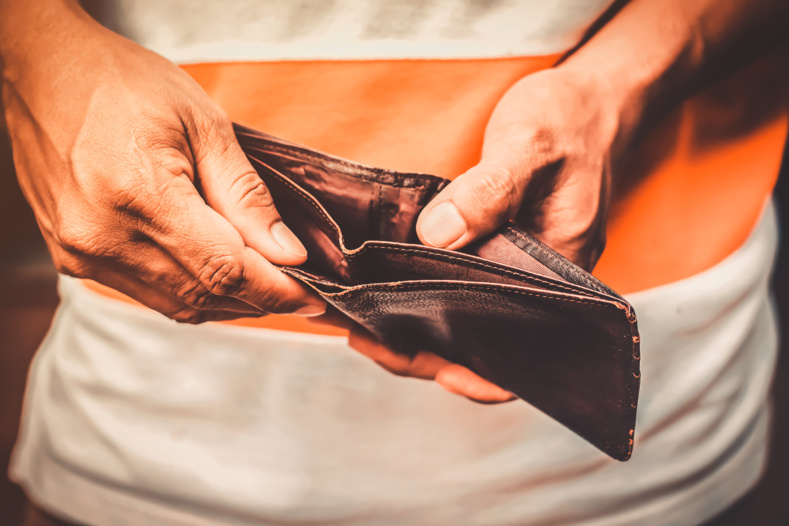US San Francisco is considering officially prohibiting stores, restaurants, cafes, bars and other retailers from turning away payments in cash. "I just felt it wasn't fair that if someone wanted to buy a sandwich in a store, and they had cash, that they would be turned away," said Supervisor Vallie Brown, who introduced the legislation. The community criticized not only individual stores and cafes, but also the actively growing smart shops chain Amazon Go, which has no cash desks, and where buyers paywith bank cards.
San Francisco authorities believe that a growing number of cash-free shops is a discrimination against some categories of consumers, including underbanked and unbanked low-income people. Similar initiatives are also being mulled over in other US cities, particularly in New York, Washington and Chicago. For example, 12% of adult New Yorkers do not have a bank account. If we consider that this number often includes people of color, and that 17% of African American and 14% of Latin American New Yorkers are unbanked, it becomes clear that the problem is also racial. Some American observers consider the refusal to accept cash not only consumer discrimination, but also racial discrimination. Others even call it “fascism with a friendly face”, condemning non-alternative totalitarian thinking of those who believe that non-cash payments are the only correct way to pay for goods and services.
This issue bothers not only US, but Europe and Asia, too. Many experts are afraid that cashless society will result in social isolation and create a two-tier community. There are enough underbanked and unbanked people everywhere, and their total number reaches 1.7 billion adults across the world, states a recent report of the World Bank. These conditions hide a hazard of “creating islands, where the unbanked transact [only] with each other”, says Ajay Banga, Mastercard’s CEO.
In fact, such islands already exist. Here’s India, the country that seeks to spearhead the cashless campaign. Just 63% of adults there have access to the financial system. Financial inclusion in rural India, which houses 70% of the country’s population, is even less. In China, the country with the largest number of mobile users in the world, some 200 million Chinese rural citizens stay unbanked, or outside of the formal financial system. All these people are unable to comply with the strict requirements of financial systems in their countries due to their socioeconomic background, national practices (such as the caste system in India), low level of education, weak social ties, prejudices, unclear information or lack of it and lopsided financial regulations that put profit before people.
Social status of these people already hinders access to many public goods, be it medicine or education. Financial exclusion exacerbates this situation and puts additional barriers not only for those directly affected, but also for their children and relatives.
Those, who have no access to the general financial system, are forced to rely on intermediaries, putting themselves at risk of theft, loss or advanced fees. Moreover, people in narrow circumstances have to knuckle under the demands of the system that deprives them of control over their lives.
Currently, we can observe this situation in Europe, where any attempt of migrants to take a step away means losing financial assistance and leaves them unprotected. Meanwhile in Australia, cashless welfare cards are causing great resentment among those who receive social security. The recipients can spend the money in government-approved locations only, without any possibility to take advantage of better deals in other stores, visit an interesting or important paid event, or pay for extra-curricular activities of their children. In these cases, the cashless system no longer simply delimits these communities. By implying people ’s inability to manage their lives, the governments deprive them of the right to live with dignity and limit chances of improvement.
Perhaps, the cashless society may still seem just a fantasy, but we only have to take a look around to see that it isn’t true. Our lives have greatly changed since credit and debit cards began to push cash away. But could we previously think that finance might make it possible to limit a person’s freedom or impede access to basic public services?
It may well be so that in the cashless future paper money will be considered as means of payment for low-income people, and its use will indicate the income level. Higher fees or lack of a bank account will make poor people pay for the privilege of using cash, without any access to cashless benefits. Some have already realized this danger, and their efforts to brake the rushing digitalization should be supported as much as possible.
San Francisco authorities believe that a growing number of cash-free shops is a discrimination against some categories of consumers, including underbanked and unbanked low-income people. Similar initiatives are also being mulled over in other US cities, particularly in New York, Washington and Chicago. For example, 12% of adult New Yorkers do not have a bank account. If we consider that this number often includes people of color, and that 17% of African American and 14% of Latin American New Yorkers are unbanked, it becomes clear that the problem is also racial. Some American observers consider the refusal to accept cash not only consumer discrimination, but also racial discrimination. Others even call it “fascism with a friendly face”, condemning non-alternative totalitarian thinking of those who believe that non-cash payments are the only correct way to pay for goods and services.
This issue bothers not only US, but Europe and Asia, too. Many experts are afraid that cashless society will result in social isolation and create a two-tier community. There are enough underbanked and unbanked people everywhere, and their total number reaches 1.7 billion adults across the world, states a recent report of the World Bank. These conditions hide a hazard of “creating islands, where the unbanked transact [only] with each other”, says Ajay Banga, Mastercard’s CEO.
In fact, such islands already exist. Here’s India, the country that seeks to spearhead the cashless campaign. Just 63% of adults there have access to the financial system. Financial inclusion in rural India, which houses 70% of the country’s population, is even less. In China, the country with the largest number of mobile users in the world, some 200 million Chinese rural citizens stay unbanked, or outside of the formal financial system. All these people are unable to comply with the strict requirements of financial systems in their countries due to their socioeconomic background, national practices (such as the caste system in India), low level of education, weak social ties, prejudices, unclear information or lack of it and lopsided financial regulations that put profit before people.
Social status of these people already hinders access to many public goods, be it medicine or education. Financial exclusion exacerbates this situation and puts additional barriers not only for those directly affected, but also for their children and relatives.
Those, who have no access to the general financial system, are forced to rely on intermediaries, putting themselves at risk of theft, loss or advanced fees. Moreover, people in narrow circumstances have to knuckle under the demands of the system that deprives them of control over their lives.
Currently, we can observe this situation in Europe, where any attempt of migrants to take a step away means losing financial assistance and leaves them unprotected. Meanwhile in Australia, cashless welfare cards are causing great resentment among those who receive social security. The recipients can spend the money in government-approved locations only, without any possibility to take advantage of better deals in other stores, visit an interesting or important paid event, or pay for extra-curricular activities of their children. In these cases, the cashless system no longer simply delimits these communities. By implying people ’s inability to manage their lives, the governments deprive them of the right to live with dignity and limit chances of improvement.
Perhaps, the cashless society may still seem just a fantasy, but we only have to take a look around to see that it isn’t true. Our lives have greatly changed since credit and debit cards began to push cash away. But could we previously think that finance might make it possible to limit a person’s freedom or impede access to basic public services?
It may well be so that in the cashless future paper money will be considered as means of payment for low-income people, and its use will indicate the income level. Higher fees or lack of a bank account will make poor people pay for the privilege of using cash, without any access to cashless benefits. Some have already realized this danger, and their efforts to brake the rushing digitalization should be supported as much as possible.















